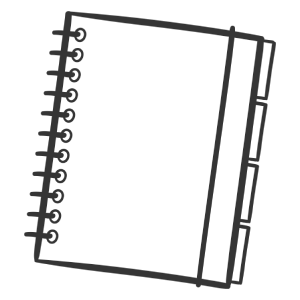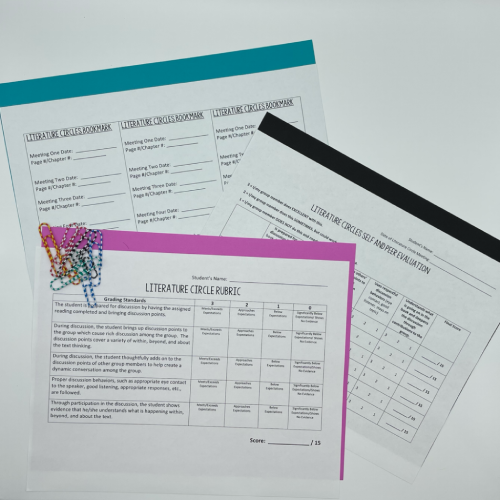To any teacher out there reading this post, I think we can all give a big “Amen” to the statement, “Being a teacher is hard.” On any given day, a teacher could be asked to do a million different things, none of which may be on their perfect, little “To Do” list. I realize I am a little Type A, but one of the worst feelings to me is when I look down at my to do list at the end of a day and realize that things that “suddenly just came up” prevented me from doing what I had planned for my day. The multitude of tasks that can potentially take up time during a school day is immeasurable. Which is exactly why teachers need to be clear on what tasks are worth the time and what tasks are worthless time stealers. Below is a diagram where I have clearly laid out what I believe the four most important tasks on any teachers to do list should be. I will also propose tasks that should go last or be eliminated all together at the end of this blog post.

The diagram above is circular, as one step rests upon the previous step. There are only so many hours in the day, and while I’m at work, I want to spend my time doing things that are going to make the biggest impact on the learning of my students.
Analyze Data from Assessments: Spending time with what my students are able to do as readers and writers is going to give me the best information about where to take them next as readers and writers. I do this by:
-Reading students’ writing. As I’m reading student writing, I want to read it through the lens of what I’m assessing. The categories from the rubric I have created for this writing assignment should be the guide I need to focus in on how my students are doing toward meeting the standards.
-Reading students’ writing about reading: As I’m reading what students have written in response to reading, it is the truest glimpse I can get as to what my students are understanding as readers, and how deep their reading comprehension skills are.
-Word Study Quizzes: As I teach grammar, writing skills, and how words work through weekly word study topics, I assess students each week on if they are able to take on that skill.
-Reading Records: Listening to students who are having reading troubles read out loud and analyzing what types of mistakes they are making helps me know where to go next with them.
Plan Whole Group, Small Group, and Individualized Instruction based on Standards: I don’t have the “go to” lessons that I revisit again and again year after year. I am well-versed on the reading and writing standards I need to cover, but how I go about teaching these standards and how fast I sequence lessons to meet these standards all depends on the data I receive from analyzing student assessments. Based on what I learn from students’ writing, quizzes, and reading records, I am constantly asking myself these questions:
-What do all students need? (Whole Class Minilessons)
-What do some students need? (Small Group Instruction: guided reading, guided writing, literature circles)
-What do individual students need (Individualized instruction: writing conferences, reading conferences)
Create Assessments Based on Instruction: Based on the minilessons I teach, I want to know what students are able to take from this instruction and apply as readers and writers. It is important to me to design assessments that will authentically show me what my students can do.
-Writing Assignments (varying lengths, genres, time constraints, etc.) with coordinating rubrics.
-Writing about Reading Responses with coordinating rubrics.
-Word Study Quizzes
Give Specific Student Feedback on Assessments: Students need to know what they did well and what they need to keep working on. How feedback is presented to students can inspire them to put in less effort, put in more effort, or give up. Giving feedback is tricky and should not be taken lightly. I find the more specific I can tailor my rubrics, the easier it is for me to give students honest, supportive feedback. Students in my class don’t get points just for doing an assignment or showing up. Grades are given based on what students show me they can do as readers and writers. No matter if a student is the lowest reader and writer in my class or the highest, I try to give feedback that will show something they are doing well and something to keep working toward.
Where to Spend Less Time:
So there you have it, this is where the majority of my time as a teacher goes. But if this is where all of my time goes, where doesn’t my time go? I’m going to propose ten places below to consciously spend less time as a teacher.
1. Prettiness: There’s an upcoming door decorating competition or you found the cutest bulletin board on Pinterest that you want to bring to reality? Just stop. Organize your classroom the way you want it at the beginning of the school year. Keep up with anchor charts, display student work, make sure the room stays organized, but don’t engage in who can have the prettiest classroom competitions.
2. Student Behavior: Here’s a big newsflash! If you’re truly spending your time on the four areas above, you are going to spend WAY less of your time contacting parents, writing referrals, and dealing with the aftermath of poor student behavior because your students will be engaged in what they’re learning in your classroom.
3. Teacher Small Talk: I know this is a bit harsh, I apologize, but how much time do you waste making small talk with other teachers? If you truly want to maximize your time, have the necessary conversations at the meetings you inevitably have to attend, and try to maximize other parts of your day without 15 minute conversations that suck away your precious time.
4. Making Copies: Get a notebook system in place with Reading and Writing Workshop and forget about all the time you would spend at the copy machine, the jams, the waiting line, etc., etc., etc. I don’t need to go any further with this one. Forget the worksheets, and stay away from the copy machine.
5. E-mails: The best thing I ever did this year was disable the pop-up message preview of each e-mail I get. Instead, I check my e-mail every couple of hours and respond as necessary without getting bogged with big group reply alls or unnecessary back and forth e-mail exchanges. Not to mention I’m not playing the “start-stop” game by being constantly interrupted with e-mail messages.
What else can you think of that teachers should do more of and less of? I would love to hear more ideas!







